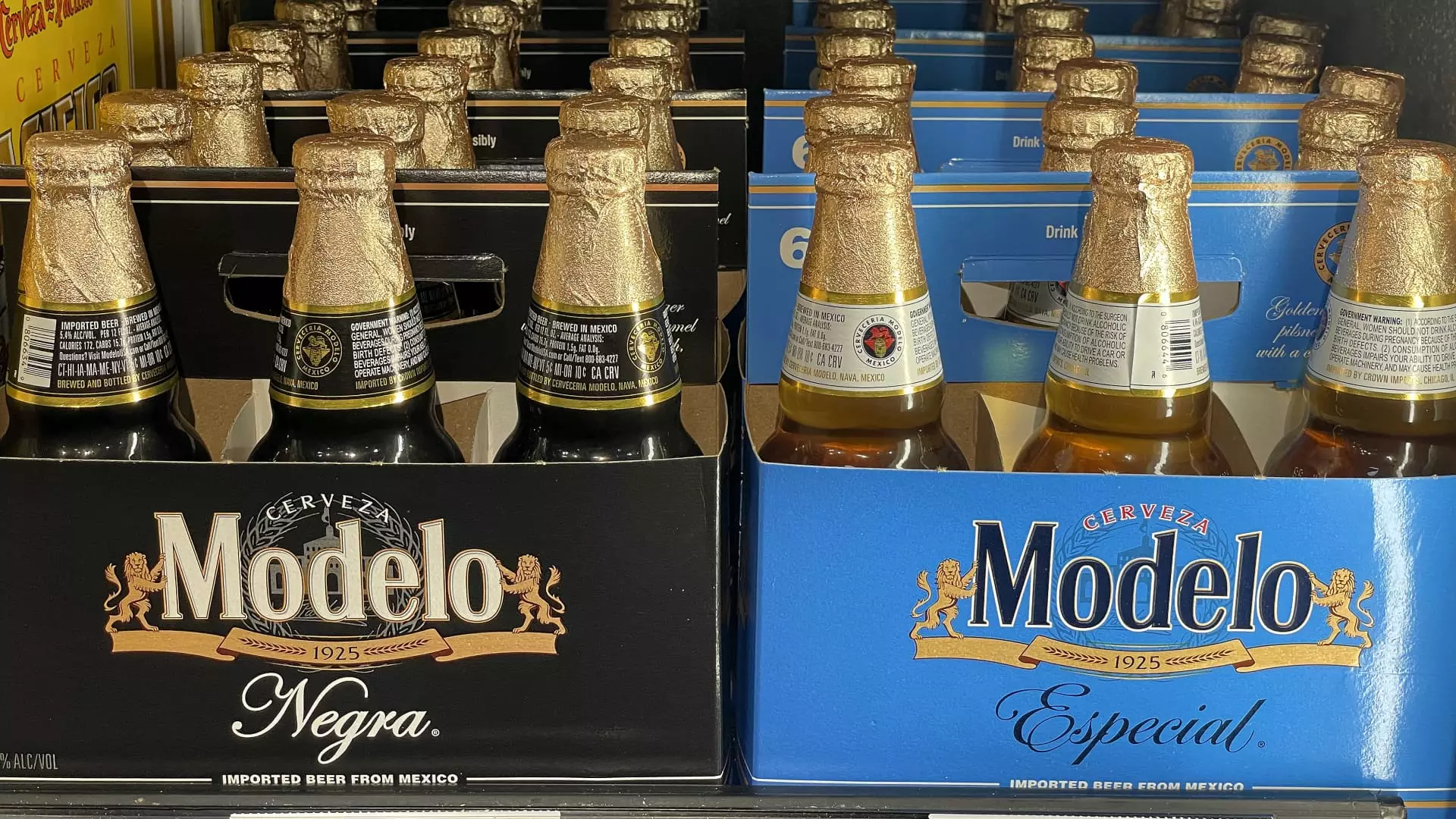Recent economic reports reveal a troubling decline in consumer purchasing, especially within specific demographic groups, underscoring the far-reaching consequences of political choices on everyday life. Constellation Brands, a major player in the beer industry, experienced a 2% drop in sales during its latest quarter. While some analysts might attribute this dip solely to market fluctuations, a closer look exposes a deeper issue: the pervasive anxiety fueled by government policies, notably immigration enforcement under President Donald Trump. The aggressive deportation strategies and their ripple effects have cast long shadows over consumer confidence, particularly among Hispanic communities—who form a substantial portion of the company’s customer base.
This scenario exemplifies how political landscapes permeate economic behavior. When policies threaten stability or job security within specific communities, spending habits tend to contract. Constellation’s CEO, Bill Newlands, emphasizes that the decline in Hispanic consumer expenditure isn’t coincidental but directly linked to broader fears surrounding immigration enforcement and economic stability. This reflects a wider hesitation among consumers who are increasingly wary of their financial futures amid uncertainty.
The Economic Fear Spiral and Its Real-World Consequences
The broader fear of inflation and economic instability appears to be catalyzed by political rhetoric and policy actions. The recent announcement of tariffs by the Trump administration has increased costs for raw materials, such as aluminum, directly impacting beverage producers like Constellation. This inflationary pressure further erodes consumer purchasing power, exacerbating the decline in demand — especially for premium or discretionary products like craft beer.
Furthermore, the unpredictable nature of immigration raids creates an atmosphere of uncertainty, making it difficult for businesses to forecast demand accurately. Although Newlands refrains from explicitly blaming Hispanic shoppers for the downturn, the correlation is evident. Hispanic consumers, accounting for roughly half of Constellation’s sales, are particularly susceptible to political and economic shocks. When their sense of security diminishes, so does their willingness to spend on non-essential goods.
This decline is not isolated. Major companies such as Coca-Cola and Colgate-Palmolive have also reported similar trends, revealing that the underlying issue spans beyond one industry. It highlights a fundamental truth: economic health is intertwined with political stability, and policies that undermine social cohesion will inevitably suppress consumer confidence and spending.
Political Liberalism’s Blind Spot in the Pursuit of Policy Goals
From a center-right liberal perspective, it’s apparent that current political strategies lack a nuanced understanding of economic stability. While the desire to enforce immigration laws is valid for maintaining sovereignty and law-order, the blunt instruments of raids and deportations risk undermining the social fabric that sustains economic vitality. These policies, designed ostensibly for national security, inadvertently weaken the loyal consumer base that drives growth in industries like brewing and consumer goods.
The challenge lies in balancing enforcement with economic pragmatism. A more centered approach would recognize that fostering social stability and economic certainty is essential for sustained growth. Politicians and policymakers who ignore these interconnected dynamics risk provoking a self-fulfilling prophecy: increased fear leads to reduced demand, which then hampers economic recovery and innovation.
Until a more balanced, inclusive policy framework is adopted—one that respects the importance of social cohesion while maintaining security—businesses will continue to bear the collateral damage. The market, after all, reflects consumer confidence, and that confidence cannot thrive amidst ongoing political unrest and economic uncertainty.

